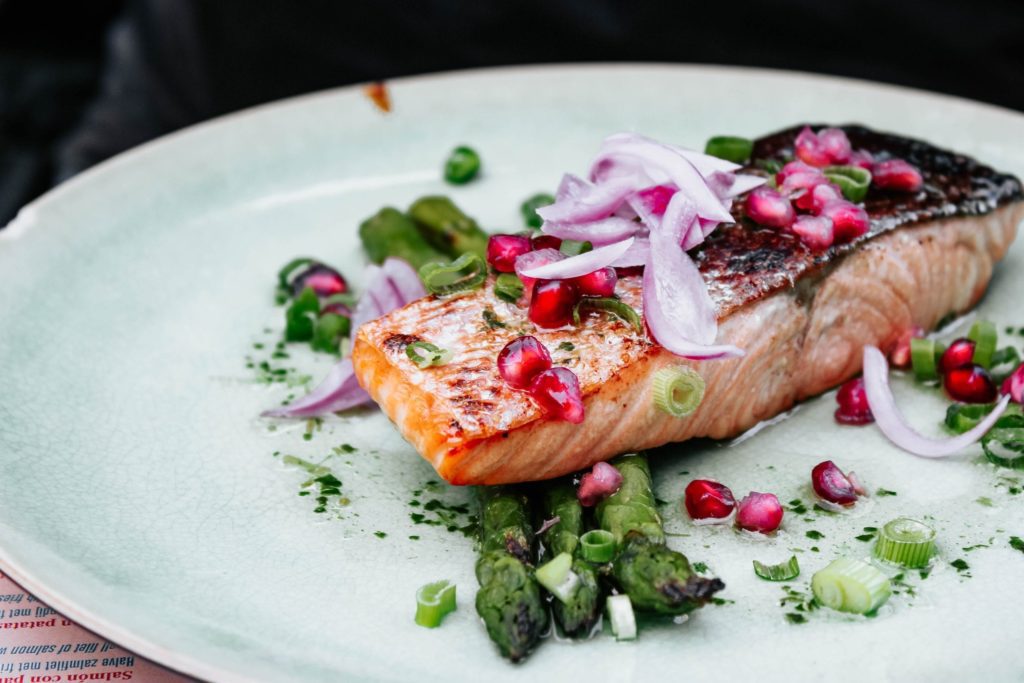 Why going gluten-free isn’t a fad diet
Why going gluten-free isn’t a fad diet
Doctors have recognized gluten sensitivity and Celiac Disease for decades, though the last 10 years or so has seen it become more mainstream. Avoiding gluten or eliminating it from your diet completely is a thing normal people have been doing to feel better ever since the food pyramid was created in 1992 to emphasize wheat consumption.
It’s true that some serial dieters have taken up gluten-free without actually needing to be gluten-free because of symptoms they’re experiencing. Meanwhile, there are more than 3 million Americans who actively eliminate gluten from their diets because of Celiac Disease and untold millions who should eliminate it due to sensitivity. What some don’t realize that if you do have undetected Celiac Disease or gluten sensitivity and you continue ingesting gluten, over time, this can cause other serious consequences as the body continues to silently attack itself.
Signs you might benefit from a gluten-free diet
Some of you might experience mild symptoms like slight bloating or a small skin rash, that you consider mere annoyances. Going gluten-free might make you feel better after you eat. You might see your skin clear up or your sleep improve. You might be able to focus better at work or notice you’re not experiencing as many headaches.
The rest of you might find your lives completely disrupted by severe reactions to gluten. These more worrying symptoms of Celiac Disease and gluten sensitivity are often quite similar. They include gastrointestinal problems, like abdominal pain, severe bloating, diarrhea, and constipation; neurological problems, like depression, brain fog, ADHD-like behavior, and chronic headaches and migraines; skin diseases like eczema and psoriasis; and broader issues, like joint pain and fatigue.
3 ways to find out if you have a gluten sensitivity
Celiac patients can now be diagnosed by primary doctors through a standard lab-drawn blood test. But if you’re lucky to be negative for Celiac, it doesn’t mean you don’t have an intolerance. Finding out if you have a sensitivity to gluten often requires more trial and error. This is where I can help. There are three ways I help my clients uncover gluten intolerance:
1: Stool test
Stool tests are easier than they sound. These tests require you to collect a stool sample, put them into specific containers, and mail them away to a lab.
The test I recommend is a one-day collection. The great thing about this test is that it won’t just tell us if you have a gluten sensitivity. The one-day collection also provides a picture of the overall health of your gut by revealing bacterial imbalances, hidden infections, and inflammation—all of which could contribute to your symptoms.
2: Food sensitivity testing
There’s a new batch of mail-away blood tests that allow you to test just a smudge of blood from an at-home finger prick or visit a local, walk-in lab for a quick blood draw. These options usually test for dozens of different sensitivities in one go, making them a good option if you’re unsure about what’s causing your symptoms.
The blood test I recommend to my clients looks at foods at the peptide level and is super sensitive in determining your IgE, IgG and IgA reactions to particular foods, especially gluten. This allows us to put together a specific plan for getting you feeling better faster. I prefer testing to guessing!
3: Gluten-only elimination diet
Want a DIY test on the cheap? A 3-week gluten elimination diet is a great place to start.
On day 1, remove all the gluten from your diet. Remember, that includes wheat, certain grains, pasta, oats, and soy sauce, which tends to lurk in a lot of sauces and processed foods. You can go here to find a complete list of gluten sources. Keep the gluten out for 21 days. If you start to feel better overall and notice your symptoms have lessened, chances are good that you’re sensitive to gluten. Of course you can continue to stay away from gluten if you’re clear you’re feeling better, but if you need confirmation, then add gluten back in and see if you experience any of your previous symptoms. Let me help guide you through an elimination diet if DIY seems overwhelming.
Should you go gluten-free?
Trying to figure out which part of your diet isn’t working for you can be an exercise in frustration. I know; I’ve been there myself!
My decision to become the CEO of my body many years ago, changed my life. It took a lot of trial and error to find the right practitioners to work with, but I’m happy to say I’ve figured it out.
My personal health journey is the reason why I decided to go back to school and become a diagnostic nutrition practitioner and wellness coach. Now, I work with people like you (and me) to help you figure out the root cause of what’s causing your symptoms, and how we can make it right.
Want to talk through how I can help you start living a full life again? Click here to book an appointment.
 Why going gluten-free isn’t a fad diet
Why going gluten-free isn’t a fad diet



